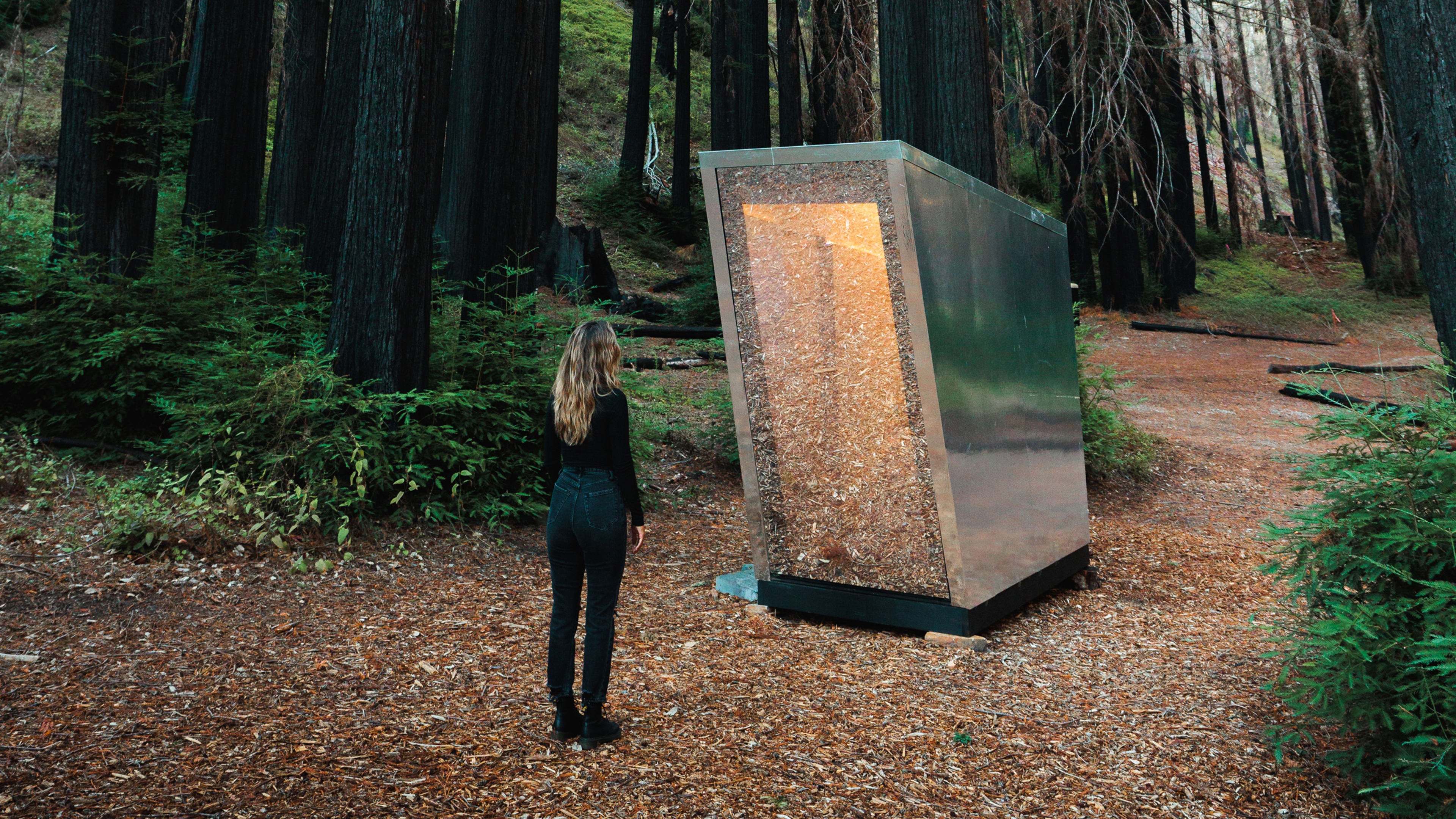With a reflective mirrored exterior, sharply angled roofline, and an uplit white interior measuring just a few dozen square feet, the Portal is a compact piece of modern architecture. It is also a place to poop.
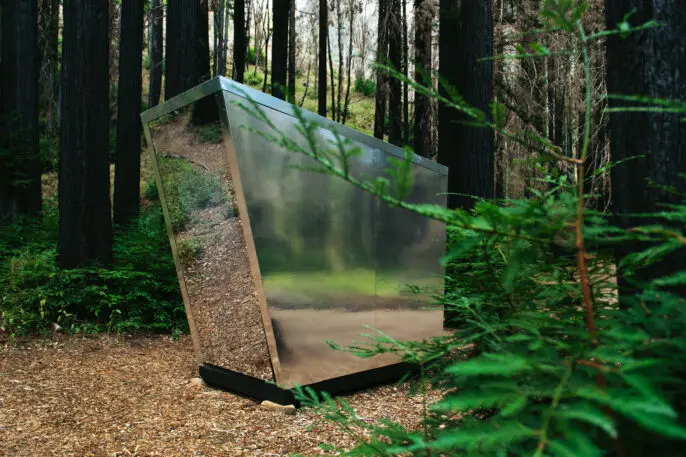
The recently launched off-grid restroom is trying to be the high-end disrupter of the $1.9 billion portable sanitation industry. Designed to be an elegant alternative to the plastic toilets common on construction sites and festival grounds, the Portal features a full-size interior mirror, solar-powered LED lighting, and an always-on ventilation system. Pricing starts at $4,950.
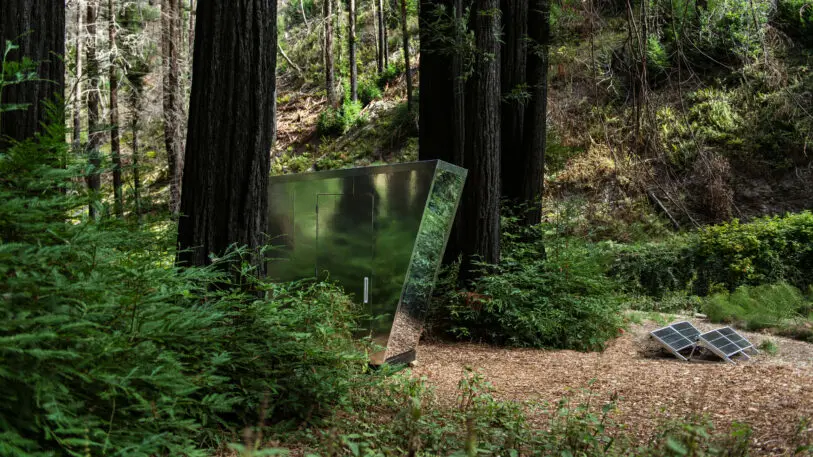
“In most porta potties you’re in this cramped space banging your knees against the door; there’s all this bad plastic, it smells, there’s no light,” says Jeff Wilson, the creator of the Portal. “Why not make it a less shitty experience, so to speak? Why not make it something that actually provides some delight?”
The Portable Sanitation Association International, a trade group representing the manufacturers and servicers of portable toilets, estimates that there are 3.6 million porta potties in use globally, serving billions of people. Wilson says this arguably unglamorous sector was ripe for innovation. “There has been zero disruption,” he says.
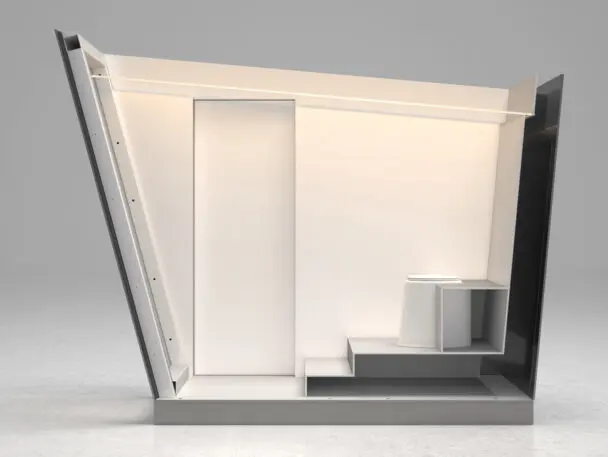
Wilson has some experience in rethinking tiny buildings. As a professor at Huston-Tillotson University in Austin, he founded the Dumpster Project, an experiment in turning garbage dumpsters into very compact homes. He lived in one for an entire year. Later, he broadened that concept to the slightly more marketable product of accessory dwelling units (ADU), or backyard tiny homes. In 2015 he founded Kasita, a startup focused on building modular ADUs. The company ultimately failed.
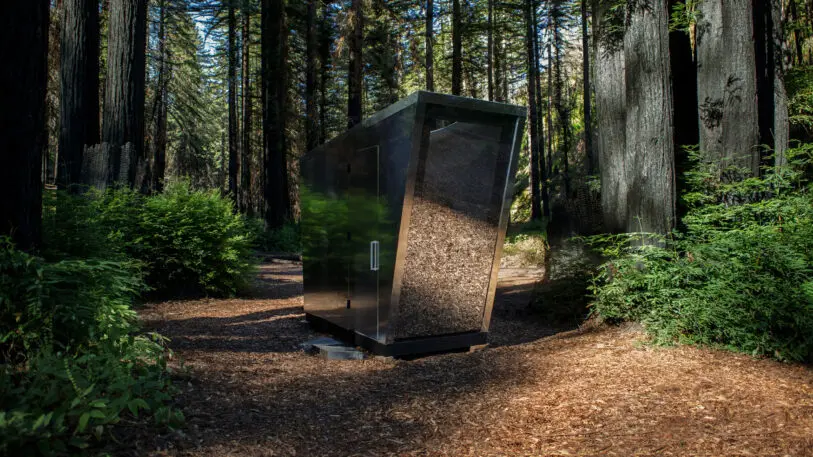
Now, he’s back at it with a new company, called Jupe, which builds flat-pack pop-up camping structures that offer luxury accommodations for off-grid locations. The company has produced about 150 of its pop-up tent pods, many of which are in use at 15 different glamping sites. Wilson expects the company to complete 500 of these pods by the end of the year.
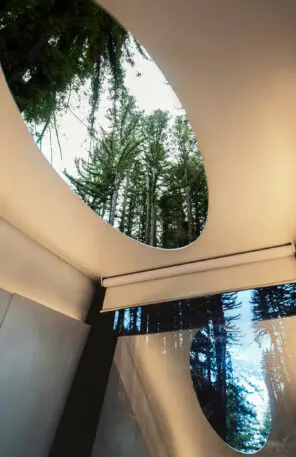
The Portal is a natural add-on to this lavish camping experience, offering a bathroom that matches the design-forward aesthetic of the tent pods. “We didn’t want to build the normal tent or yurt, and we don’t want to build the normal porta potty,” Wilson says. “We made this thing that looks a lot more like a time machine or an alien spaceship that landed in the woods and turns out to be a pretty cool toilet.”
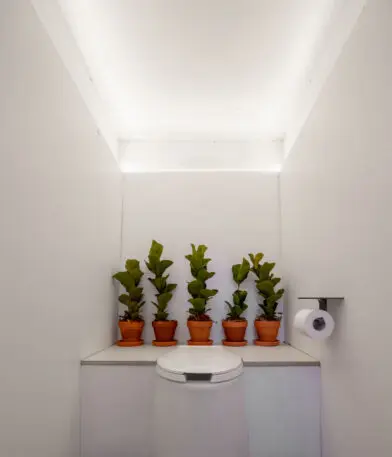
Wilson says the Portal was inspired by modern artists, including James Turrell, who’s known for his light-flooded chambers with apertures that are open to the sky. The portal includes its own Turrell-like elliptical aperture, which appears to be a perfect circle when seated within.
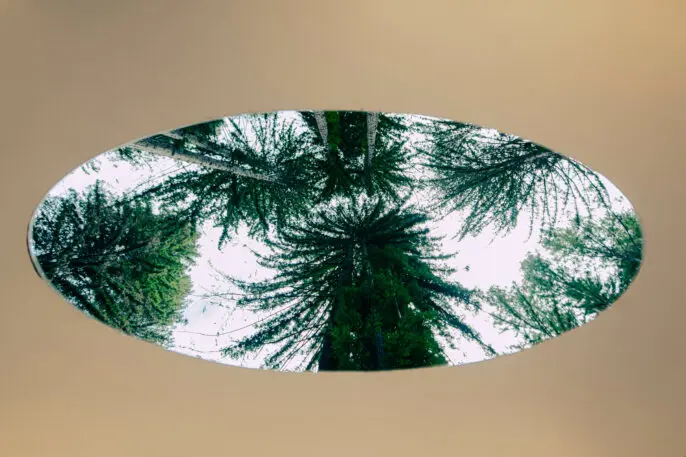
“We’ve gone about it from the perspective of how would a user want to experience this space, not how can you get in and out as fast as possible,” he says. “It really is an aspirational vibe.”
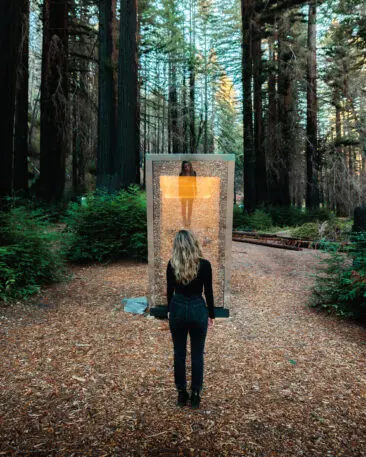
Wilson realizes this vibe may not fit in everywhere a portable toilet is needed. “Construction sites probably aren’t going to adopt the Portal immediately,” he says. Instead, he’s targeting other glamping sites, events like Coachella and Burning Man, and even weddings. “There are all of these types of events that aren’t construction sites that I think folks would want a little bit better experience.”
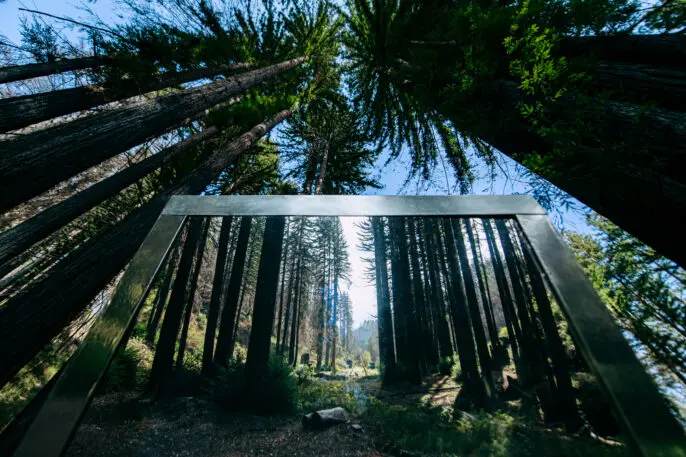
Wilson says the company has sold “a few dozen” Portals so far, and expects production to increase in 2023. He’s also planning to offer another version that includes a system to convert sewage waste into fertilizer, but that is probably at least a year away. In the meantime, he’s trying to see just how much demand there is for a high-end, art inspired, spaceship of a porta potty.
“If we can remove the smell, make things a little bit better, there’s probably a market for that,” says Wilson. “We don’t really know because as far as we can tell nobody’s tried.”
Recognize your brand’s excellence by applying to this year’s Brands That Matter Awards before the early-rate deadline, May 3.
